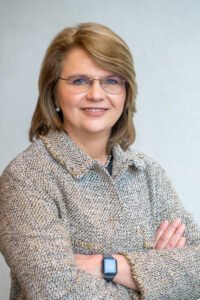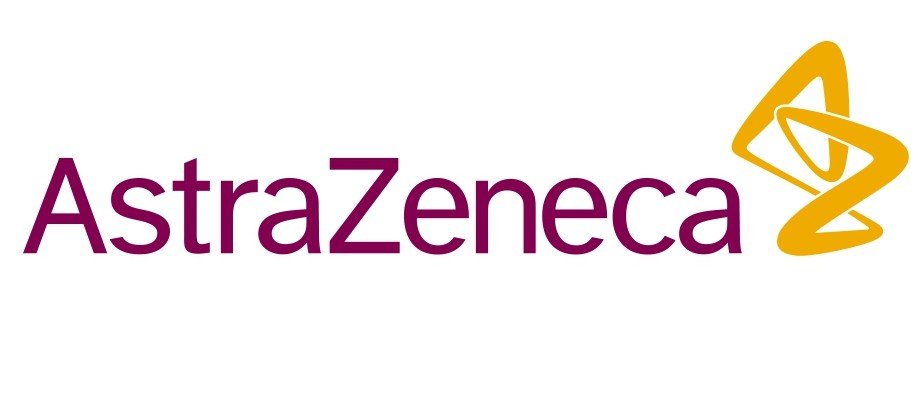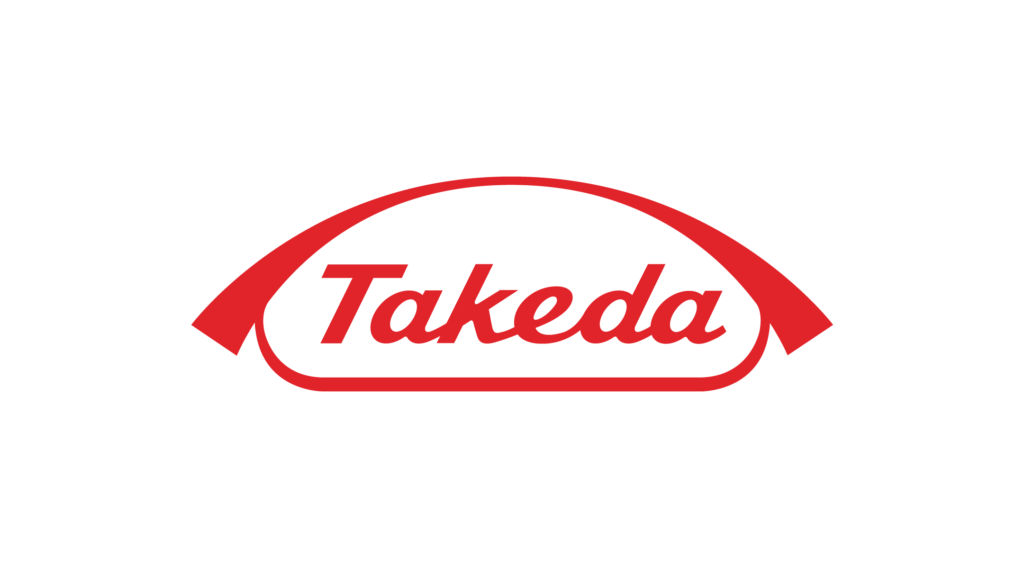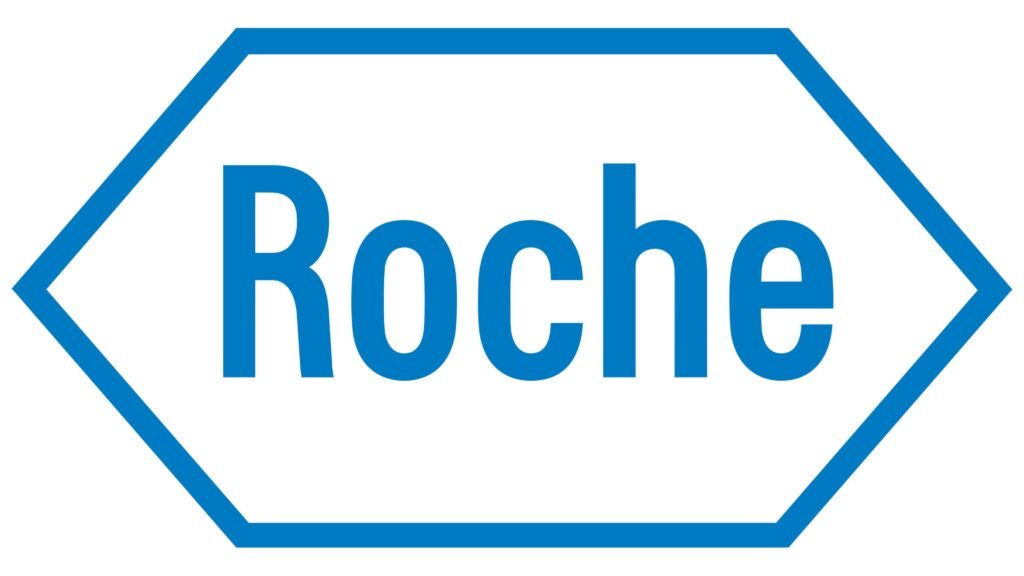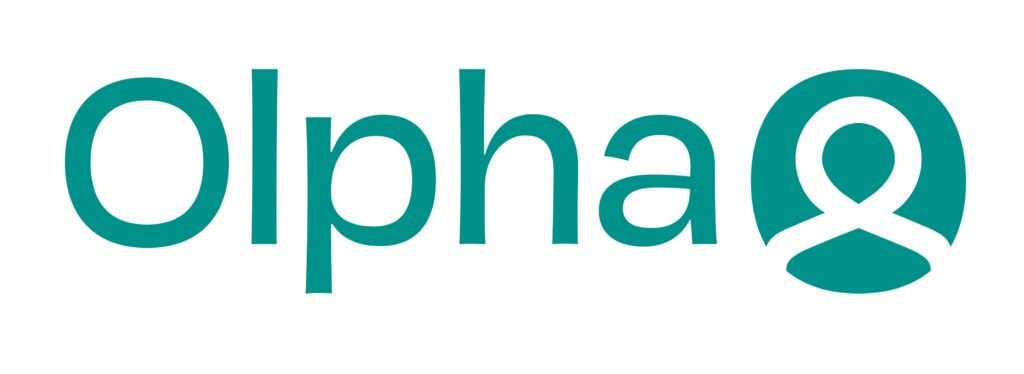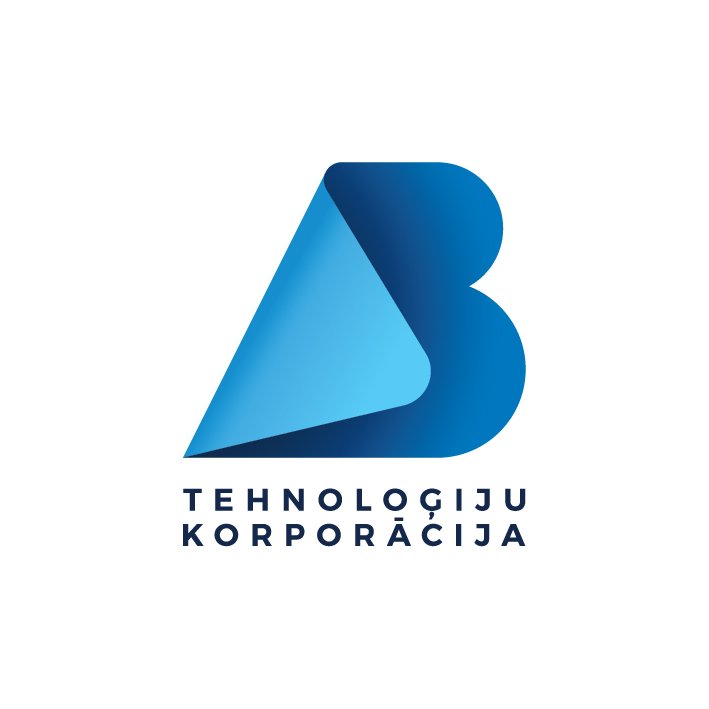Baltic School of Neuro-Myology
Neuromuscular Junction Disorders: Bridging Research, Diagnosis, and Treatment
22-23 August 2025 | Jurmala, Latvia

About the Baltic School
It is our pleasure to announce the 5th Baltic School of Neuro-Myology: Bridging Research, Diagnosis, and Treatment that will take place on 22-23 August 2025 in Jurmala, Latvia. The official language of the event will be English. This meeting is endorsed by the ERN EURO-NMD.
The 5th Baltic School of Neuro-Myology: Bridging Research, Diagnosis, and Treatment is intended for neurologists, child neurologist, geneticists, pathologists, pulmonologists, orthopedists, other speciality doctors, physiotherapists, nurses.
The first Baltic School of Neuro-Myology “Metabolic Muscle Disorders”, took place in Riga, Latvia, April 26th-27th 2019 thanks to the organizing committee from France and Sweden. This is the beginning of a new tradition on neuromuscular disorders events. The school was attended by established and young physicians, researchers, therapists and neuropathologists from the Baltic states and Europe. This event invited everyone interested in neuromuscular disorders to increase their knowledge and share experience in all aspects of this issue.
The second Baltic School of Neuro-Myology “Limb-girdle muscular dystrophies”, took place in Riga, Latvia, August 26th-27th 2022. The school was attended by specialists from all over the Europe – Latvia, Estonia, Lithuania, Finland, France, Sweden and Italy.
Conference premises
Lielupe Hotel by Semarah
Bulduru Avenue 64/68
Jurmala, LV-2010, Latvia
website


We are here to help
In the case of questions feel free to contact us via email info@infinityevents.lv
PROGRAMME
Welcome Coffee & Registration
Opening Remarks: Shaping the Future of Neuromuscular Research
Moderators: Dr Ieva Glāzere (LV), Prof. Csilla Rozsa (HU)
Lecture: Neuromuscular Junction Physiology – A Gateway to Understanding Disorders
Lecture: Myasthenia Gravis – Strategies for Accurate Diagnosis
Coffee Break & Networking
Moderators: Dr Piotr Szczudlik (PL), Dr Marija Roddate (LV)
Lecture: MuSK-Positive Myasthenia Gravis – Clinical Features and Latvian Experience
Lecture: MG Crisis Management – Emergency Response and Best Practices
Lunch Break
Interactive Workshop: Mastering Electromyography – Techniques and Pitfalls
Afternoon Coffee Break
Prof. Bjarne Udd (FI), Prof. Edoardo Malfatti (FR)
Lecture: Historical Landmarks of the CMS Saga
Lecture: Clinical Management – Best Practices for Complex Cases
Lecture: Common Congenital Myasthenic Syndromes – Red Flags and Diagnosis
Case Study Panel I: Real-Life Diagnostic Dilemmas in MG
Dinner
Moderators: Dr Amir Dori (IL), Dr Evelina Grušauskienė (LT)
Lecture: Myasthenia Gravis Management – From Treatment to Prognosis
Lecture: Multidisciplinary Approach in Myasthenia Gravis – Optimizing Patient Care
Case Study Panel II: Real-Life Diagnostic Dilemmas in MG
Coffee Break & Networking
Moderators: Prof. Anna Rostedt Punga(SE), Assoc. Prof. Liis Vali (EE),
Lecture: Lambert-Eaton Myasthenic Syndrome – Identifying Key Clinical Features
Lecture: Lambert-Eaton Myasthenic Syndrome – Evidence-Based Treatment Approaches
Lunch Break
Moderators: Assoc. Prof. Viktorija Ķēniņa (LV), Prof. Kestutis Petrikonis (LT)
Lecture: Neuromuscular Junction Disorders in Lithuania
Lecture: Neuromuscular Junction Disorders in Latvia
Lecture: Neuromuscular Junction Disorders in Estonia
Closing Remarks: Advancing Collaboration in Neuromuscular Junction Disorders
Break
Symposium for Baltic Neuromuscular Care Teams
Title: Sharing Experiences and Shaping the Future: Innovative Treatments and
Multidisciplinary Approaches in Neuromuscular Disorders
Coordinators: TBC
This session is reserved for invited participants from the neuromuscular care teams of Latvia,
Lithuania, and Estonia.
This dedicated working session will offer a collaborative space for in-depth discussion among
invited experts. The focus will be on:
– Sharing national experiences in the implementation of the newest treatment strategies
– Strengthening multidisciplinary collaboration in neuromuscular care
– Coordinating future regional initiatives, with a special emphasis on rehabilitation
Organizing committee
Meet our distinguished team
Lecturers
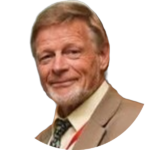
BJARNE UDD
Prof., MD, PhD
Neuromuscular Research Center, University of Tampere
Folkhälsan Institute of Genetics, Biomedicum, University of Helsinki
Dr. Bjarne Udd was born in Finland and received his MD from the University of Berne, Switzerland, in 1975. He completed his residency in Neurology at the University Hospital in Umeå, Sweden, and the University Hospital in Helsinki, Finland.
In 1992, he earned his PhD from Helsinki University with a thesis on a newly identified type of muscular dystrophy, which leads to distal Tibial muscular dystrophy (TMD) in heterozygotes and severe LGMD2J in homozygous patients.
Dr. Udd has held an academic appointment (Docent) at Tampere University since 1997. In 2004, he became the Head of the Advanced Neuromuscular Diagnostics Program at Tampere University Hospital, a nationwide and international quaternary referral center for neuromuscular disease patients with undetermined diagnoses. In 2008, he was appointed Professor of Neurology in Neuromuscular Disorders, and in 2013, the clinical service was expanded into the Neuromuscular Research Center at Tampere University Hospital.
Currently, Dr. Udd leads two research groups:
One at the Folkhälsan Research Center in Helsinki
One at Tampere University Hospital
He is an active member of several international research boards in neuromuscular diseases. His research primarily focuses on very rare neuromuscular diseases, including:
Muscular dystrophies
Distal myopathies
Rimmed vacuolar myopathies
Limb-girdle dystrophies
Myotonic dystrophy type 2
Dr. Udd was the first to describe a human muscle disease caused by titin mutations, including TMD (Udd myopathy) and LGMD2J. His research has contributed to the identification of over 20 new muscle diseases, many involving previously unknown myopathy genes.
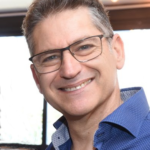 AMIR DORI
AMIR DORI
Senior Clinical Lecturer of Neurology, Tel-Aviv University
Director, Neuromuscular Clinic & Neuromuscular Pathology and Research Lab, Sheba Medical Center, Israel
Dr. Amir Dori earned his MD and PhD from Ben-Gurion University Medical School in Israel and is board-certified in neurology. Following a three-year neuromuscular clinical fellowship at Washington University in St. Louis, he returned to Israel in 2014 and established the Sheba Neuromuscular Clinic and Neuromuscular Pathology and Research Lab.
Dr. Dori’s research focuses on neuromuscular disorders, including:
ALS (Amyotrophic Lateral Sclerosis)
Hereditary amyloidosis
Immune-mediated polyneuropathy
Ultrasound imaging of neuromuscular disorders
He integrates human tissue biopsy samples into basic science research, contributing to advancements in the field. He has published over 50 peer-reviewed papers and has received multiple awards for excellence.
Currently, Dr. Dori serves as a senior clinical lecturer of neurology at Tel-Aviv University and is the director of the Neuromuscular Clinic, Neuromuscular Pathology, and Research Lab at Sheba Medical Center.

JON ANDONI URTIZBEREA
MD, MSc
Dr. J. Andoni Urtizberea, aged 66, is a French physician trained at Paris University, France (1983-1987) and certified in both pediatrics and PMR (physical medicine and rehabilitation). After graduating in parallel from the Institut d’Etudes Politiques de Paris in 1987, he served for many years as Medical Director for the AFM-Telethon and as General Delegate of the Institut de Myologie of Paris between 1993 and 2000. As Scientific Director of the European Neuromuscular Center (1999-2005), he contributed to the inception of many global networks in myology.
Until December 2019, he worked as a part-time clinical myologist at Hendaye Hospital, France (APHP trust) and served as deputy coordinator of the French Neuromuscular Network (FILNEMUS). Over the past thirty years, he has led various worldwide educational events dedicated to myology in Europe, Russia, Latin America, and the Middle East.
He is currently a faculty member at the Institut de Myologie of Paris, France, overseeing the various versions of AcadeMYO. He is a regular visiting professor in multiple foreign countries and a self-employed consultant for several pharmaceutical companies. Positioned at the intersection of academia, patient advocacy groups, and industry, his main objective is to raise awareness about rare neuromuscular conditions, particularly in emerging countries.
To that end, he co-founded and chairs “Myologie Sans Frontières,” a humanitarian NGO dedicated to the promotion of myology, mainly in Low and Middle-Income Countries.

ANNA ROSTEDT PUNGA
MD, PhD
Professor and Consultant Physician of Clinical Neurophysiology
Uppsala University and Uppsala University Hospital
Anna Rostedt Punga, MD, PhD, is a Professor of Clinical Neurophysiology at Uppsala University, Sweden. She also works as a consultant physician with strong expertise in neuromuscular disorders at Uppsala University Hospital.
Professor Punga received her MD degree from Uppsala University in 2003. She completed her clinical training as a resident and fellow at Uppsala University Hospital under the mentorship of Professor Erik Stålberg, becoming one of the leading experts in single-fiber EMG (SFEMG) and neuromuscular transmission disorders. For many years, she has led the international course on EMG, nerve conduction studies, and neuromuscular ultrasound at Uppsala University Hospital.
Academically, Professor Punga earned her PhD in 2007 at Uppsala University with a focus on Myasthenia Gravis (MG), and she has since built a strong international profile in translational MG research. As a postdoctoral fellow in 2009 at the University of Basel, Switzerland, she joined the European “Fight-MG” consortium, a multi-country initiative to advance the understanding of MG epidemiology and pathophysiology.
Since then, she has led a successful translational research group at Uppsala University, with ongoing international collaborations and basic and clinical science projects. Her team has pioneered the discovery of circulating biomarkers in MG and conducted national studies on MG epidemiology, pregnancy, and the benefits of physical exercise—being among the first to highlight the positive effects of physical activity in MG.
As principal investigator, Professor Punga has secured major grants from the Swedish Research Council, the Erling Persson Foundation, and the Myasthenia Gravis
Foundation of America. Her work was recognized with the prestigious Göran Gustafsson Prize in Medicine for her research in MG.
She has publishe
d 66 peer-revie
wed original articles, primarily on MG and neuromuscular transmission disorders, 12 review articles, and three book chapters. In 2024, she was invited as a plenary speaker on MG biomarkers at the International Congress on Neuromuscular Disorders (ICNMD) in Perth. Professor Punga is a member of several international MG expert groups and serves on the Medical and Scientific Advisory Board for the Myasthenia Gravis Foundation of America (MGFA).
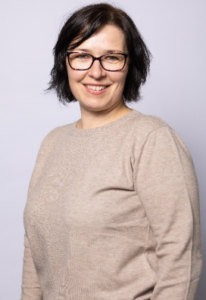 EDITA JAZEPČIKIENĖ
EDITA JAZEPČIKIENĖ
PhD, MSc
Physiotherapist, Department of Rehabilitation
Hospital of Lithuanian University of Health Sciences Kauno klinikos
Lecturer, Department of Rehabilitation
Lithuanian University of Health Sciences
Edita Jazepčikienė, PhD, MSc, is a physiotherapist at the Department of Rehabilitation, Hospital of Lithuanian University of Health Sciences Kauno klinikos. She also serves as a lecturer at the Department of Rehabilitation, Lithuanian University of Health Sciences.
Since 2018, she has focused her clinical and academic work on neuromuscular diseases in children. At the Centre for Neuromuscular Diseases, she collaborates within a multidisciplinary team to supervise and assess the functional status of both children and adults living with rare neuromuscular disorders.
Dr. Jazepčikienė has actively participated in numerous trainings, seminars, and conferences on rare neuromuscular diseases across Europe, including in the Netherlands, France, Czech Republic, Romania, Latvia, and Lithuania.
 LIIS VÄLI
LIIS VÄLI
PhD, MD
Neurologist and Neurophysiologist
Tartu University Hospital, Estonia
Liis Väli, PhD, MD, is a neurologist and neurophysiologist at Tartu University Hospital, Estonia. She has been practicing as a neurologist since 2014.
Dr. Väli earned her Degree of Medicine (MD) in 2009 and completed her residency at the University of Tartu. In 2013, she defended her PhD thesis, which focused on the epidemiology of traumatic spinal cord injuries in Estonia.
From 2016 to 2018, she pursued postdoctoral studies at Uppsala University in Sweden, working in the Department of Clinical Neurophysiology with a research focus on myasthenia gravis.
Currently, Dr. Väli specializes in rare neuromuscular disorders in her clinical work and continues to be actively involved in scientific research. Her academic interests primarily center around neuromuscular diseases, particularly myasthenia gravis.
CSILLA ROZSA
MD, PhD
Professional preparation
Graduate University
1984 – 1990 Semmelweis University, Faculty of Medicine – MD degree
Postdoctoral University
2007 Pécs University School of PhD Studies PhD in Neurosciences – PhD degree
“Clinical decision making in neuroimmunological diseases.”
Specialist in Neurology
1990-1994 Neurology resident and fellow
Board Exam in 1994- Specialist in Neurology qualification
Language English – fluent, German – fluent, Serbian – basic; Croatian – basic;
Appointments (Clinical and Research)
Since 01. 10. 2009. Head of the Department of Neurology at the Jahn Ferenc Hospital Budapest
2002 – 2009 Head physician at Jahn Ferenc Hospital Budapest, Department of Neurology
1998 – 2002 Senior lecturer at “Jahn Ferenc” Hospital Budapest, Department of Neurology
1994-1998 Assistant lecturer, Semmelweis University Budapest, Department of Neurology
1990-1994 clinical doctor, neurology resident and fellow Semmelweis University Budapest, Department of Neurology
Tutoring, Teaching and Supervision Activities
Clinical duties: Heading the Neurology Department
Teaching duties: Lecturing and providing practical education for both graduates, post graduate students (MD) and students taking part in BSC and MA programs (Nurse specialist program, Physiotherapist specialist program, Paramedic officer specialist program). Lectures are also given on CME courses on invitation.
Tutoring for diploma works.
Co-Tutor of two PhD students.
Clinical Research skills
Clinical research experience: More than 20 Phase II and III clinical trials mostly in the field of MS and MG.
Building of the Hungarian National Registry for Neuroimmunological diseases (MG, NMOSD and MS Patient registry) in collaboration with MS Base/MG Base.
Collaborations in academia
International Hungarian
Prof. Zsolt Illes University os Southern Denmark Odense
MS Base/MG Base registry
Scientific Society Membership
President of the Hungarian Neuroimmunological Society since October 2020
Member of the presidium of the Hungarian Neurological Society
Member of the Hungarian Stroke Society
Member of European Academy of Neurology
Register for early fee until 8th August
Registration fees
Registration fee includes access to Scientific sessions, Industry exhibition, coffee breaks & lunches, Dinner on 22 August and a certificate of attendance
BOOKINGS & PAYMENTS
Partner of the Latvian Society of Neuroimmuologists – INFINITY EVENTS SIA sends customers invoices according to the bookings made during registration. By accepting these terms, the customer agrees to purchase the services of their choice at the agreed-upon price, as stated in the booking.
Payment
- Full payment of fees is required prior to the Meeting. Payment can be made by bank transfer
- After the registration you will receive an invoice
- Invoice number should be used as the reference and the payment processed within 10 calendar days and within the registration deadline (early or regular)
- Do not process the payment without receiving an invoice beforehand
- If the registration is done, but you do not receive any email, look in junk/spam folders
Receiver:
INFINITY EVENTS SIA
Reģ. nr.:40203566957
VAT: LV40203566957
Adrese: Mērsraga iela 5-15, Rīga, LV-1002
Luminor Bank AS Latvijas filiāle
SWIFT code :RIKOLV2X
Konta numurs LV82RIKO0002930375128
Cancellation Policy
Registration and payment will be confirmed by e-mail. If you haven’t received and order confirmation, please check your junk e-mail folder. If you still cannot find the order confirmation, please contact us at info@infinityevents.lv
Cancellations received up to 8 August 2025 are eligible to a cancellation fee 30.00 EUR
Cancellations received from 9 August 2025 will not be refunded.
NB! Please send cancellations to info@infinityevents.lv and make sure to receive a confirmation of receipt. Cancellations are only accepted in writing. However, it is possible to allocate the booking to a third party. The contact details of the new participant are to be sent immediately, no later than 14 days before the event. However, it is not possible to change the person or organization liable for the payment.





